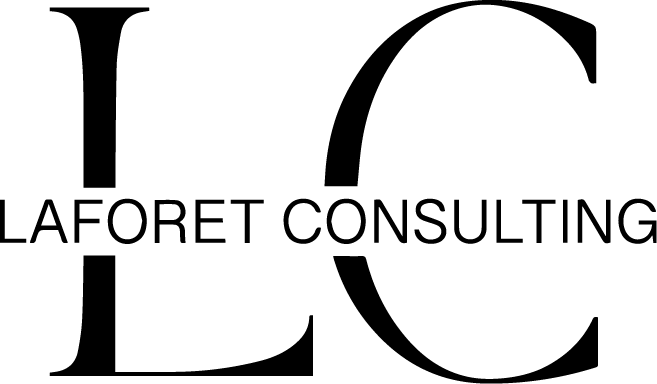Production and Logistics
Effectively managing production and logistics – ensuring stability and delivery capability
In many companies, production and logistics processes are well described in formal terms and equipped with established management tools. Nevertheless, the desired effect is often not achieved in day-to-day operations: delivery capability fluctuates, inventories rise, throughput times lengthen, and decisions lose their binding force.
The causes rarely lie in a lack of methods alone, but rather in insufficient integration of methodology, roles, and responsibilities, as well as a lack of rigor in implementation. Production and quality requirements are considered separately, even though quality is created during the process and cannot be checked only at the end. Where clear responsibilities, effective control loops, and consistent implementation are lacking, the system loses stability.
We support companies in aligning production, logistics, and quality as an integrated control system. The focus is on robust processes, clear roles and responsibilities, transparent material and information flows, and operational control that ensures quality, performance, and delivery capability in day-to-day business—even under high pressure and increasing complexity.
The goal is to ensure stability, delivery capability, and inventory security in the long term and to create a production and logistics organization in which quality is not controlled but reliably produced.
Our Operating Framework
Execution capability in transformation
In situations involving change and transformation, we consider not only processes and structures, but also the orientation, cooperation, and implementation capabilities of teams and leadership, as these factors play a decisive role in determining whether changes will have a lasting effect.
Digital evaluations as the basis for effective decisions
In our projects, we use digital, web-based evaluations as needed to capture complex situations in a structured, comparable, and transparent manner.
This is supported by a tool developed by Laforet-IT that allows evaluations to be carried out efficiently along processes, organization, quality, leadership, and performance – from data collection to a consolidated basis for decision-making.
The results are available in real time, enable cross-location and cross-departmental comparisons, and create a reliable basis for prioritization, control, and implementation. This makes qualitative assessments comprehensible, measurable, and effectively anchored.
The tool is always used in a supportive manner and is fully embedded in our consulting and implementation work.

Our services
Let’s work together to figure out how we can provide structured and effective support for your current situation.
Potential and value stream analyses along the value chain
Identification of bottlenecks, inefficiencies, and structural weaknesses in production and logistics processes as a basis for effective decisions.
Establishment and further development of robust production systems
Design and further development of effective production and control systems to stabilize performance, quality, and delivery capability.
Adaptation of manufacturing and logistics structures
Redesign of production processes, work organization, and material and information flows to increase transparency and efficiency.
Establishment and expansion of manufacturing capacities
Planning and implementation of scalable capacities, taking into account demand, resources, qualifications, and technical feasibility.
Optimization of production planning and control
Improvement of planning accuracy, resource utilization, and coordination between planning, production, and logistics.
Increased efficiency of direct and indirect processes
Optimization of supporting processes such as maintenance, production support, and cross-functional planning and control mechanisms.
Relocations, restructuring, and operational stabilization
Structured preparation and implementation of site relocations and assumption of operational responsibility in critical phases or transitional situations.
Interim management and operational leadership
Temporary assumption of management and control tasks in production and logistics in the event of special challenges or escalations.
Selected projects
- Stabilization
- Relocation
Stabilization of production and logistics under escalating conditions
In an escalating environment, we supported a plant in stabilizing its production and delivery performance after persistent deviations in delivery capability, planning reliability, and operational implementation had led to considerable pressure. Despite existing processes and systems, there was a lack of effectiveness, coordination, and consistency in implementation.
The initial focus was on the operational stabilization of ongoing operations. To this end, planning, production, logistics, and quality were closely integrated, clear control and escalation routines were established, and transparency was created regarding quantities, inventories, bottlenecks, and disruptions. The goal was to secure delivery capability in the short term while systematically addressing the causes of instability.
At the same time, an analysis of production and logistics structures was carried out, including material and information flows, work organization, and role responsibilities. Quality was consistently regarded as an integral part of the production process and not checked in isolation at the end. Clear responsibilities, effective control loops, and stringent follow-up of measures significantly improved operational control capabilities.
The combination of operational management, structural clarity, and consistent implementation made it possible to stabilize delivery performance, reduce inventory risks, and create the basis for a sustainably robust production and logistics organization.
Realignment of production and logistics structures as part of a site relocation
As part of a structural change project, we supported the relocation of a production area to a new hall with the aim of establishing a sustainable production and logistics concept and securing long-term performance.
The starting point was the realization that existing structures and material flows no longer met future requirements in terms of volume, variety, and controllability. The focus was therefore on the holistic realignment of production, assembly, and logistics processes—including layout, material supply, work organization, and control logic.
Part of the new concept was the direct connection of injection molding processes to assembly in cycles in order to reduce throughput times, avoid inventories, and ensure quality directly in the process. In addition, robust material and information flows, clear capacity and space concepts, and clear roles and responsibilities were defined.
In a structured approach, various scenarios were developed, evaluated, and gradually finalized. Thanks to the close integration of design, decision-making, and implementation planning, the relocation could be prepared and implemented in a controlled manner. The result was a scalable, transparent, and controllable production and logistics structure that forms the basis for stable processes, high delivery capability, and future growth.

